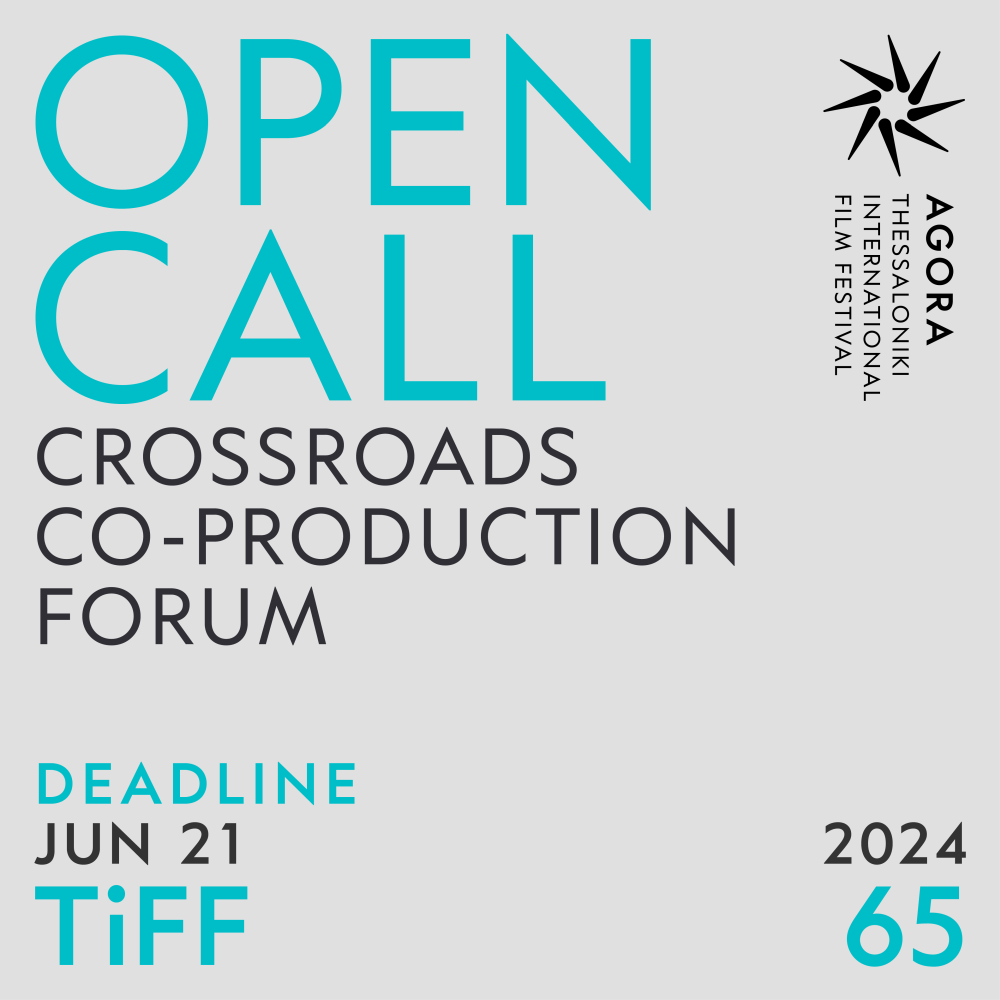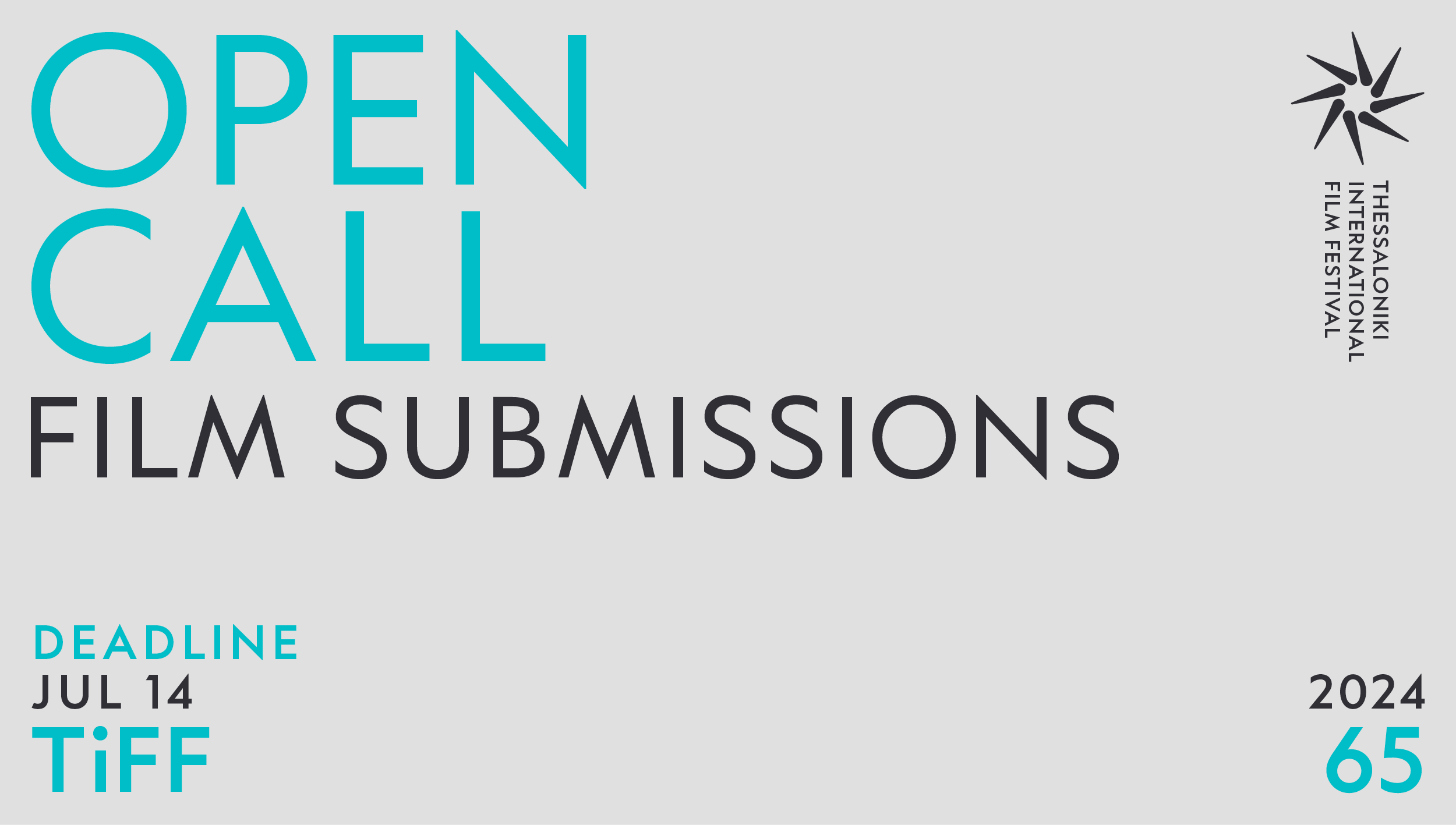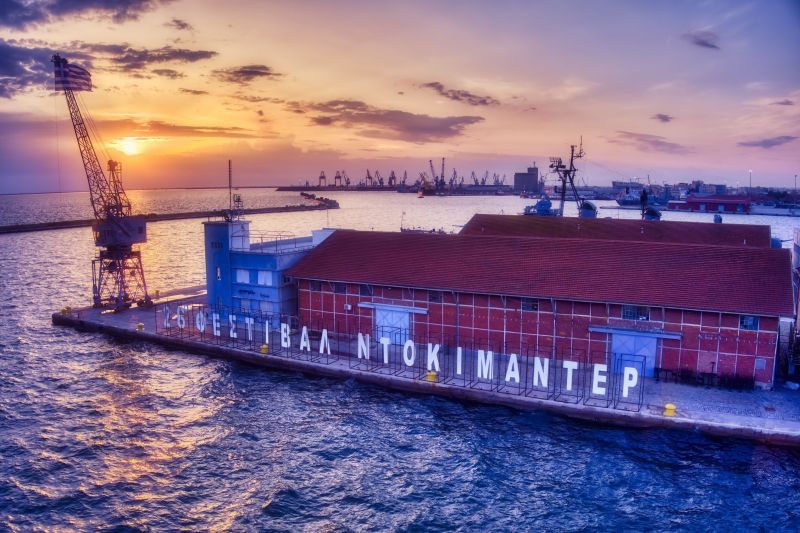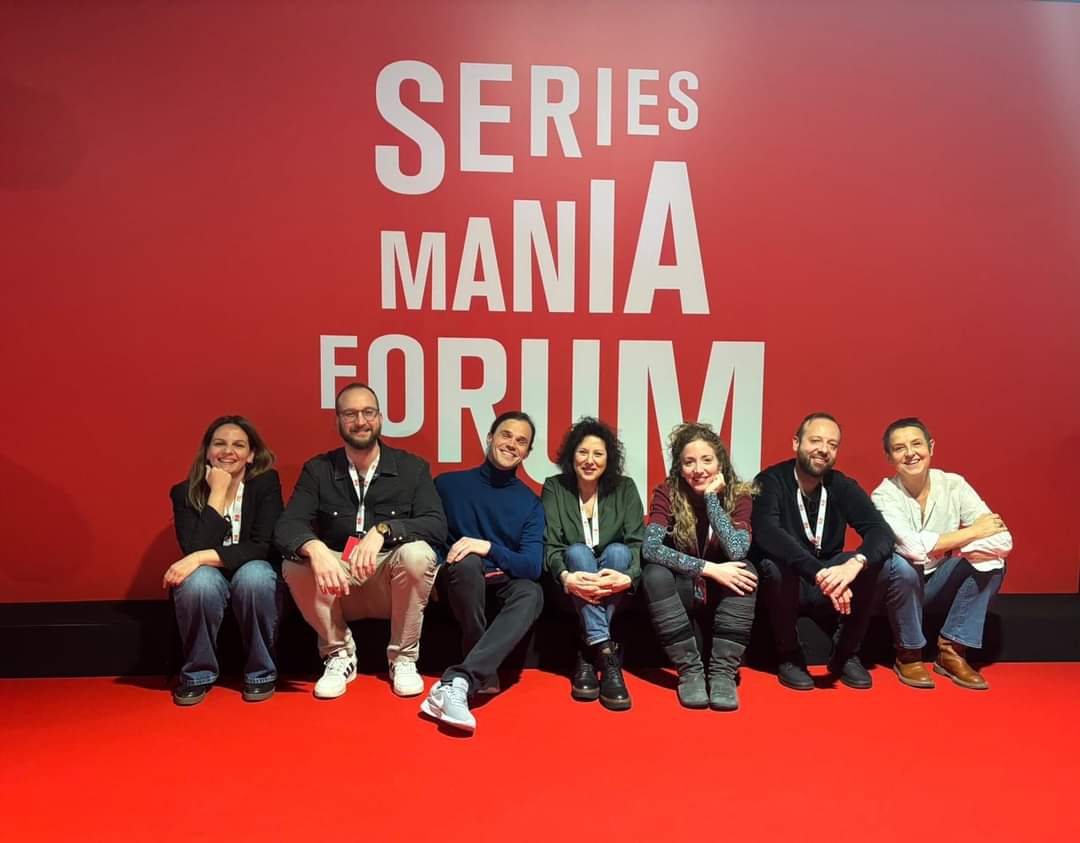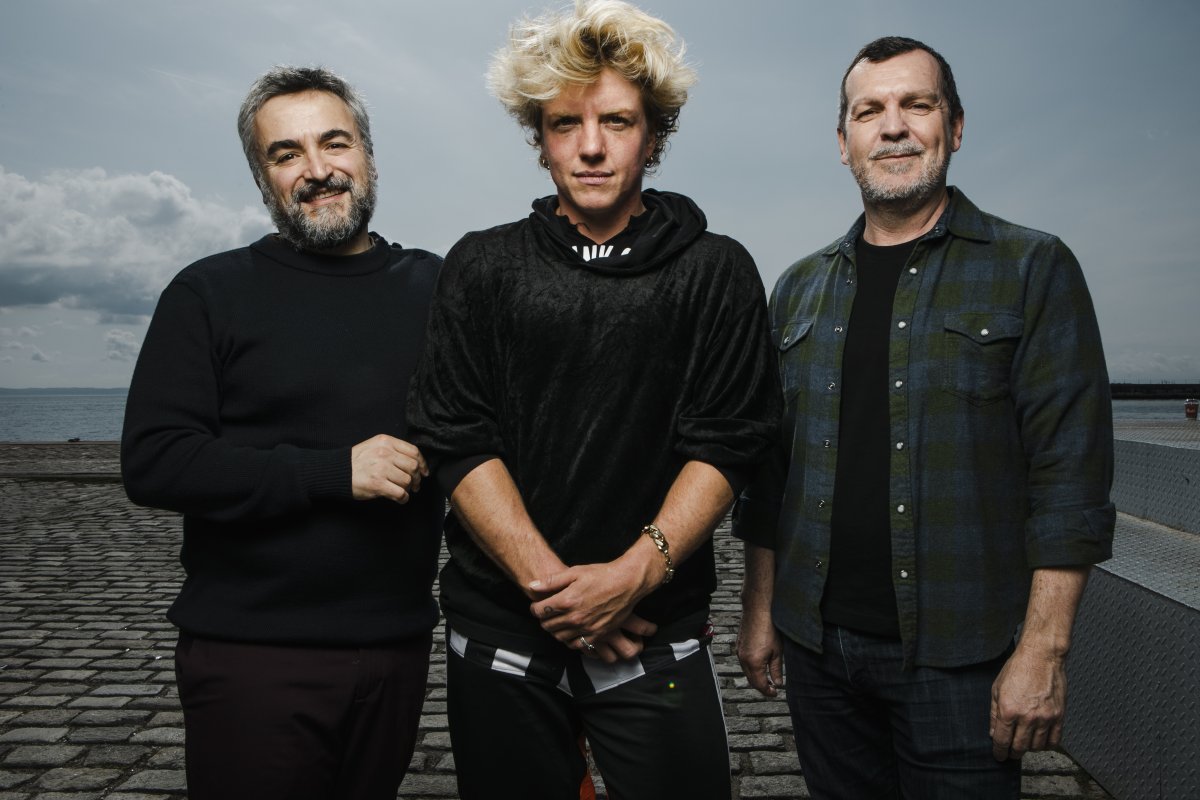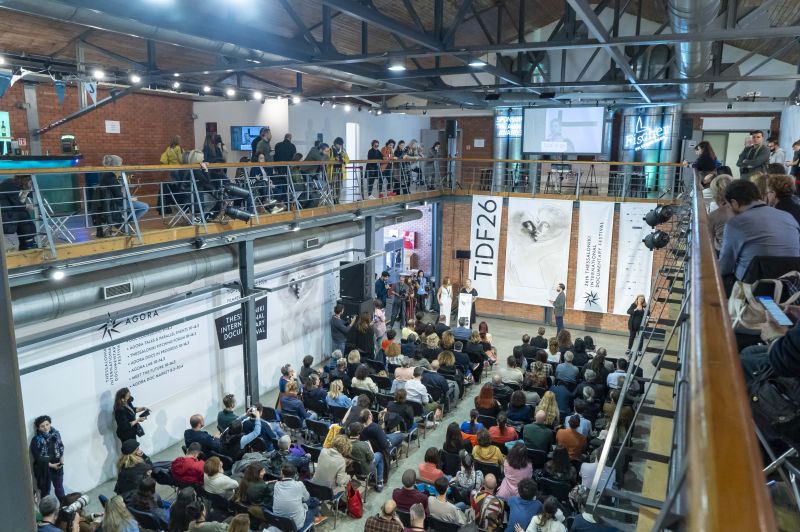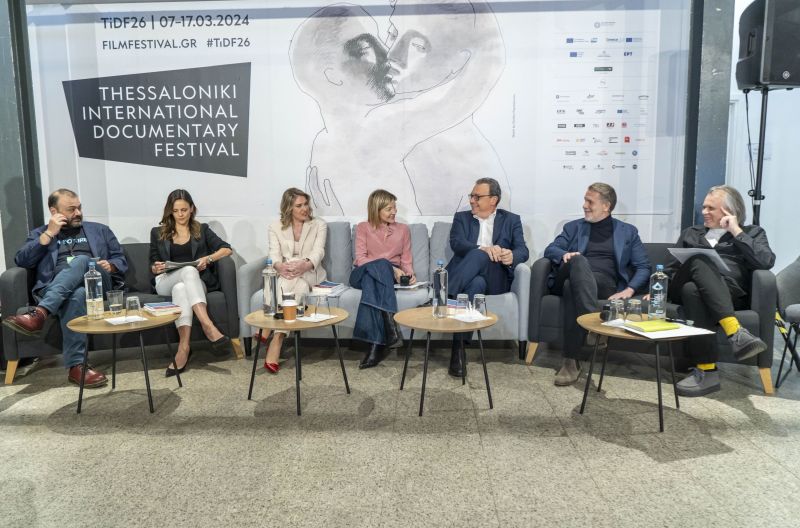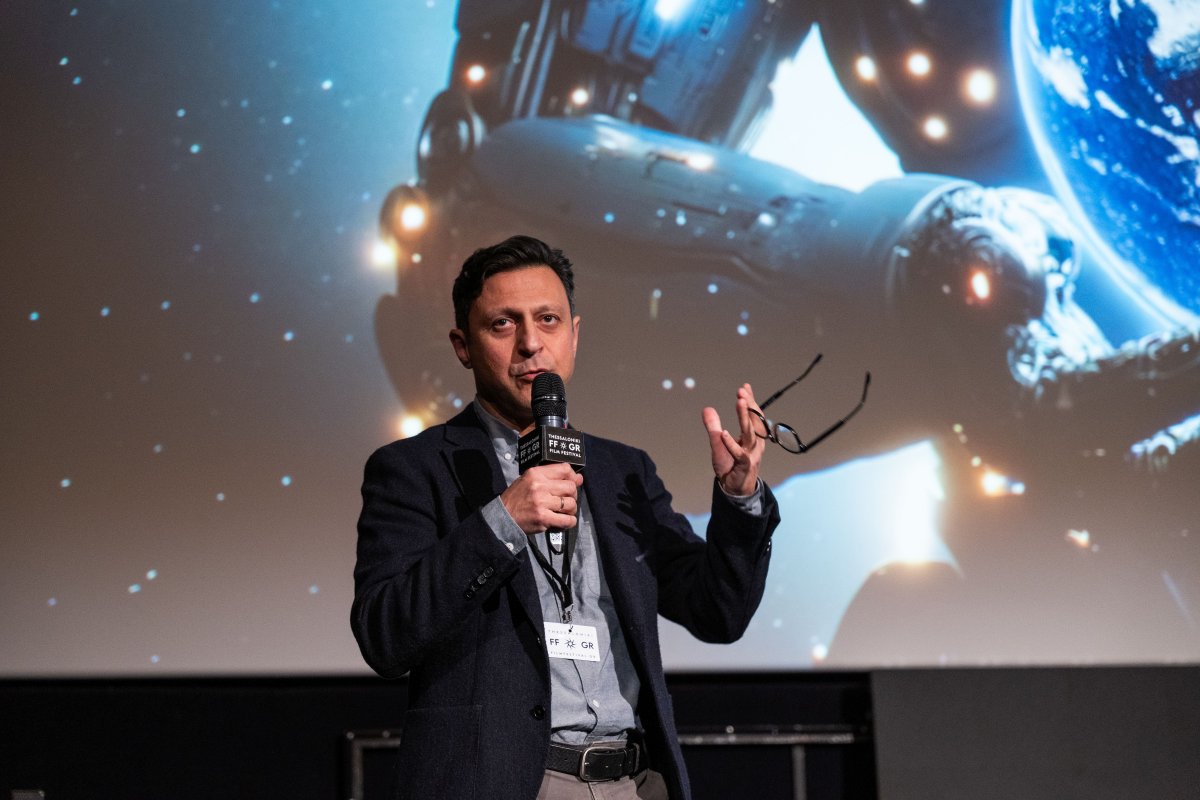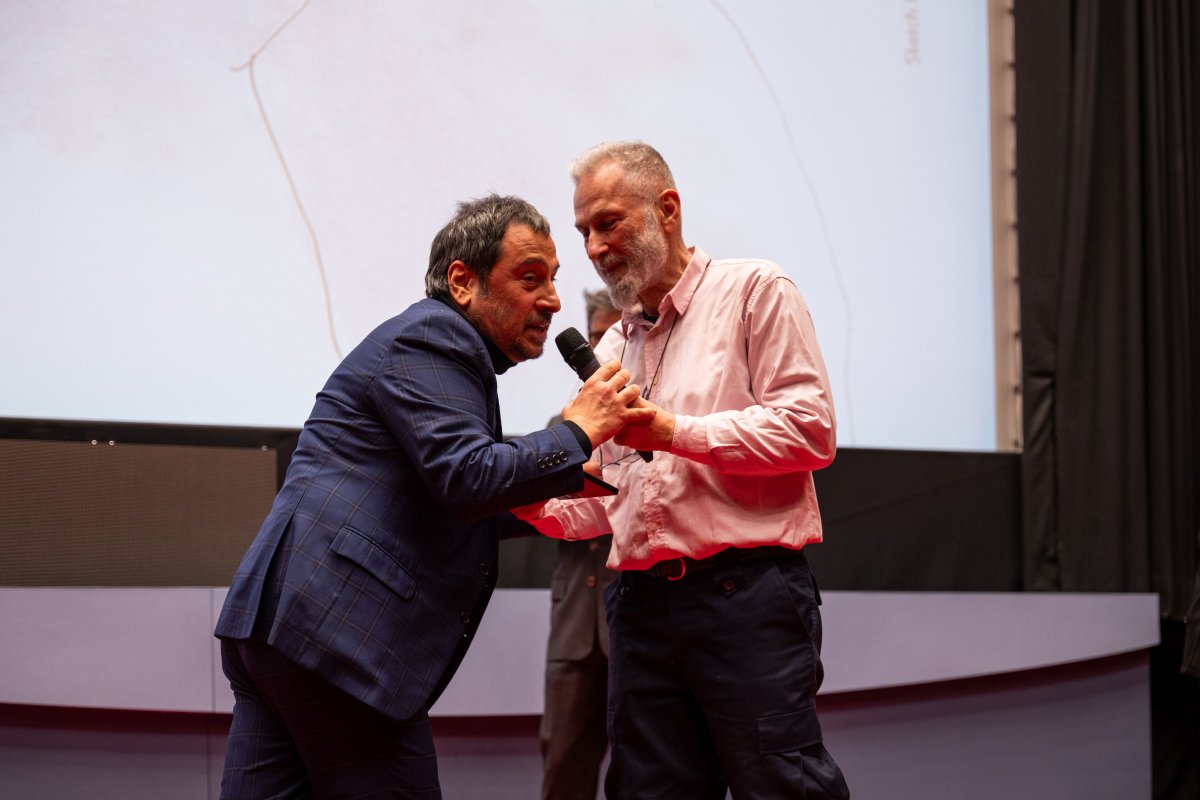PRESS CONFERENCE
LOUISE BOURGEOIS: THE SPIDER THE MISTRESS AND THE TANGERINE – LOVE ON DELIVERY - TICKET TO PARADISE – THE DANCING FOREST – BACK TO AFRICA – UPSTREAM BATTLE
A Press Conference was given on Saturday, March 21, 2009 by the directors: Janus Metz (Love on delivery, Ticket to paradise), Amei Wallach (Louise Bourgeois: The spider, the mistress and the tangerine), Brice Lane (The dancing forest), Othmar Schmeiderer (Back to Africa) and Ben Kempas (Upstream Battle), as part of the 11th Thessaloniki Documentary Festival - Images of the 21st Century.
Marion Cajori and Amei Wallach’s film Louise Bourgeois: The spider, the mistress and the tangerine is about Bourgeois, a woman who is a symbol of modern art. “In spite of being a symbol, she isn’t at all distant. She’s immediate, honest and human, a woman who charms everyone with her amazing wit and her wisdom”, Amei Wallach noted. Besides being a director, she is also an art historian. It was because of this she first came in contact with the work of Bourgeois. “I wanted to have first hand experience of Louise Bourgeois. Critics use reason, as you know, while artists use feelings and through our film about her I gained priceless experiences” Amei Wallach said.
Brice Lane’s documentary The dancing forest focuses on the Togo community in Sierra Leone whose inhabitants are trying to take their lives and their fates into their own hands. The director visited Togo for the first time at the age of 11, with his father: “We went back many times since and we developed strong ties with the community so that when I returned to Europe at 20 years of age to film school I knew that I wanted to make a film about the people of Togo. I wanted to show the Africa of the 21st century from an optimistic angle”, Brice Lane noted and continued: “The dictatorship is persecuting the people of Togo because it considers them rebels. But their attitude toward life, their ability to find their place in the historical and natural environment and to fight for their right to dignity is really admirable”.
Othmar Schmeiderer also wanted to take an optimistic look at Africa through his documentary Back to Africa which is about the artists at an African circus. The director’s lens follows the five characters for a year, at rehearsals, performances and their visits to their birthplaces and their families. “Compared to the egocentricity of western societies, the African system is incredible. People there have deeply rooted identities. So the artists in the film earn money working in Europe and give it to support their family and a community of 30-40 people”, the director noted.
With his films Love on delivery and Ticket to paradise, Janus Metz presents two aspects of globalization. “Through such things as prostitution, marriage or immigration, I wanted to make a comment about the conflict of interests and desires among people in the first and third world”, Janus Metz explained. Ticket to paradise is on the desire of Thais to marry their daughters with Danish men and send them to live in the West. Love on delivery follows these women to the West, and looks at how through their marriages with westerners they try to achieve a western kind of happiness and so win respect and social status in Thailand. “Globalization is a very abstract thing, I wanted to make it more specific, concrete. Through the relationships of these women with their western husbands, through the conflicts in their marriages the meeting of the cultures of the first and third worlds, of the culture of the individual with that of sharing, is demonstrated” noted Janus Metz.
The story of Ben Kempas’ Upstream Battle is essentially the story of David and Goliath. An Indian tribe comes up against an energy giant, the Scottish Power company which wants to build a hydroelectric dam in the area’s river. The Indians claim that the dams have decimated the salmon reserves while the company supports its interests. “The film is not black and white, it shows both sides, showing the delicate shades of the issue. In the end David wins, as he should”, the director said. While making the film all his stereotypes about Indians were destroyed: “It’s amazing how much power they have. Now the tribes are connected, they are unified against their common enemy”.



